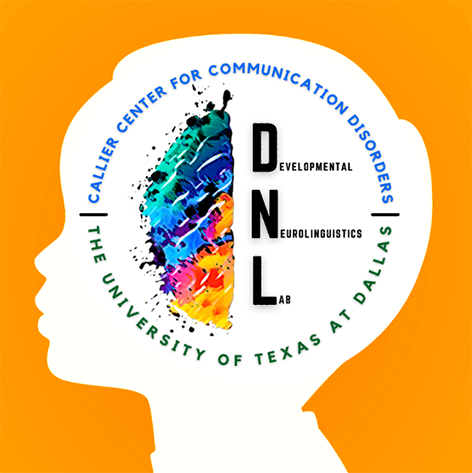Welcome to the Developmental Neurolinguistics Laboratory
(DNL Lab) at the Callier Center – Dallas

Current Studies
Word Learning in Auditory and Written Modality
This project aims to investigate how children from lower socioeconomic backgrounds learn new words in different contexts (auditory and written) using behavioral and brain measures. Researchers will assess 9-12-year-olds’ language and cognitive abilities, record their brain activity (EEG) while completing word inferencing tasks, and gather information about their home environment. The study aims to understand the variability in word learning and its impact on vocabulary growth after 6 months and 1 year, with the ultimate goal of developing tailored learning plans for all children to maximize their potential.
Neural Responses to Speech in Noise
This study focuses on understanding how competing noise and semantic constraints influence sentence processing in college students. The researchers hypothesize that listening in noise will increase alpha power compared to quiet conditions, regardless of the level of semantic constraint. They also predict that sentences with high semantic constraint will exhibit lower alpha power than sentences with low semantic constraint, regardless of the noise level. The study will also explore the relationship between individual differences in speech-in-noise skills and changes in alpha power during language processing in noise. The participants will complete various language, behavioral, and cognitive assessments while their EEG data is recorded in both noisy and quiet conditions.
LENA
This study focuses on language acquisition in young children aged 3 to 5, specifically comparing bilingual children to native English speakers. While previous research has primarily focused on language processing in adults, this study aims to understand how language acquisition occurs during the crucial period of early childhood. The participants will wear LENA devices, which record their interactions with parents over a two-day period, providing valuable data on how children communicate and in which languages. The study invites parents or guardians to involve their children in the research by reaching out via email for participation arrangements.
You must be logged in to post a comment.